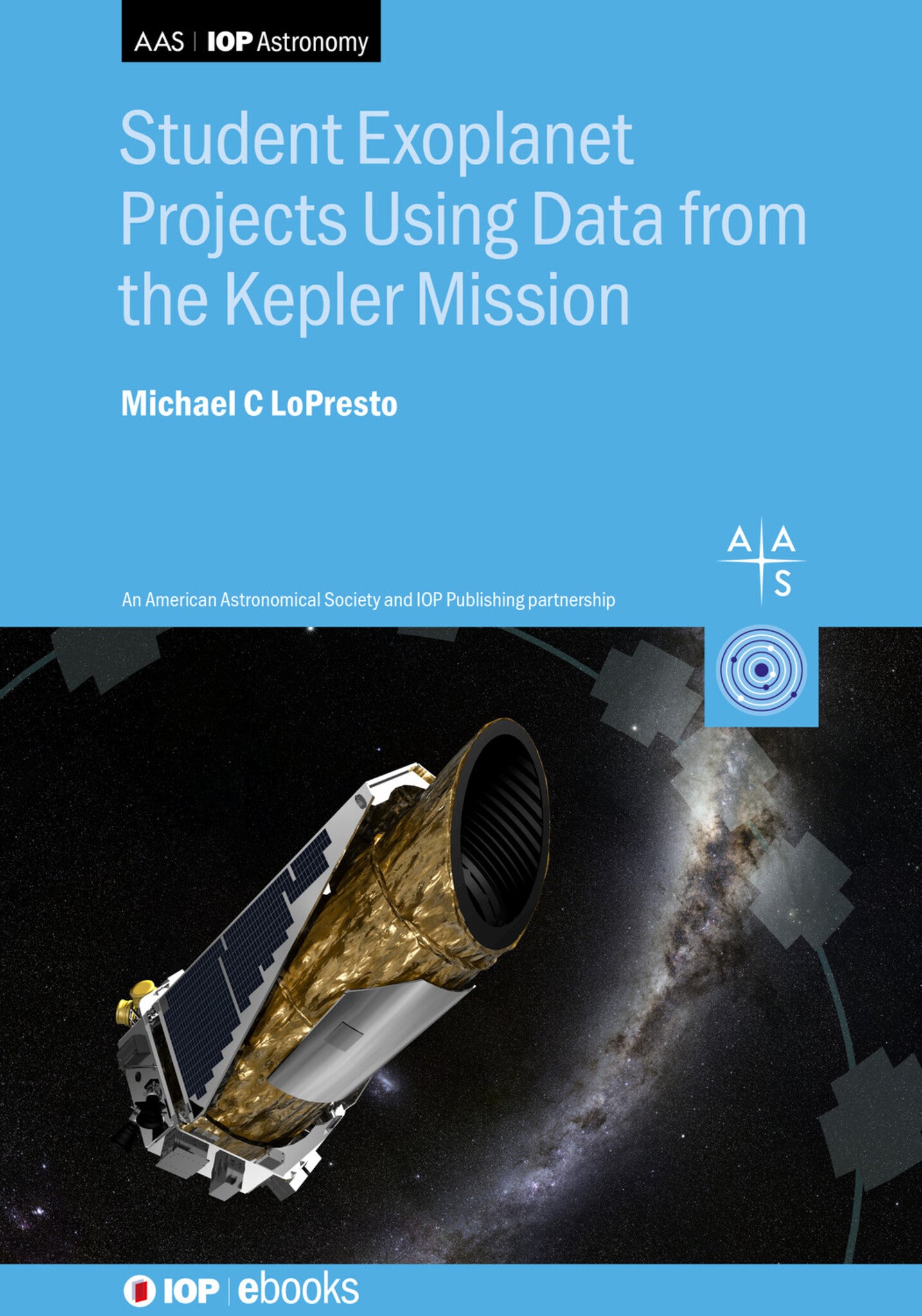We're sorry. An error has occurred
Please cancel or retry.
Student Exoplanet Projects Using Data from the Kepler Mission

Some error occured while loading the Quick View. Please close the Quick View and try reloading the page.
Couldn't load pickup availability
- Format:
-
19 November 2024

The book describes the Kepler Mission and its detection methods, providing the reader with a fundamental background from which to explore Kepler datasets independently. The book then outlines student research projects using the mission’s data that can conducted independently or guided by a course leader. These projects cover various aspects of Kepler data, including habitable zones, planetary temperatures, and the densities of different planetary types, Super-Earths, and Mini-Neptunes. Excel templates for each project are accessible alongside the book with selected data for students to analyse, and detailed instruction is provided to ensure self-sufficiency and independence. The projects are designed to teach students to consider the caveats of their findings throughout the work, placing their findings in a greater context. Key Features:
- Provides instructional material and datasets for independent student projects
- Acts as a guide for course leaders looking to introduce students to Kepler data and how to analyse planetary habitability parameters
- Provides excel templates and custom datasets for self-contained research projects
- Covers the background of the Kepler Mission necessary for independent student projects
- Summarises Kepler findings and offers an outlook to other missions continuing Kepler’s legacy

SCIENCE / Space Science / Planetary, Solar system: the Sun and planets, SCIENCE / Study & Teaching, SCIENCE / Space Science / Space Exploration, Astronomical observation: observatories, equipment and methods

- Introduction to the Kepler mission and its methods.
- Discovery of exoplanets in Habitable Zones
- Temperatures of exoplanets
- The Densities of different exoplanet types
- Super Earths & Mini Neptunes
- Conclusions & Future Research



